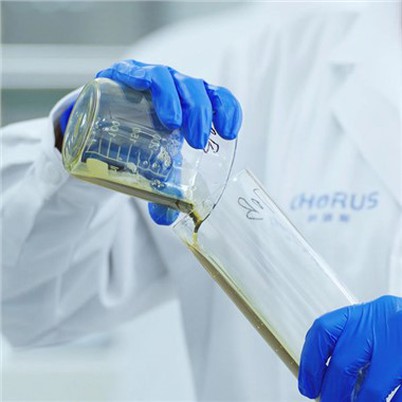What Are The Extreme Pressure Additives And Anti-Wear Additives In Metalworking Fluids?
Leave a message
During the metal-cutting, the oil film on the metal surface is completely propelled out when the load increases to a certain extent and direct contact occurs between the metal surfaces. Under this boundary lubrication, extreme-pressure anti-wear additives start to work effectively, the active elements in EP additives react with the metal at a certain temperature, and form a chemical layer to separate and lubricate the metal surfaces.
These extreme-pressure additives generally contain sulfur, phosphorus, chlorine, and other elements. These elements will form molecular films of compounds such as iron sulfide, iron chloride, and iron phosphide on the metal surface with metals such as iron at higher temperatures to prevent the metal surfaces from contacting each other, thereby avoiding welding, scratching; Different extreme pressure anti-wear agents have their workable temperature ranges, so sulfur-based, phosphorus-based, and chlorine-based additives are usually combined formulation.

Commonly used extreme-pressure anti-wear additives
Chloride-contain EP additives
Chlorides have good activity at 300-500℃, but once the temperature goes higher, chlorides may decompose and become ineffective. Chlorinated paraffin is the most typical chlorine-based extreme-pressure additive. A combination of chlorinated paraffin and high-base metal sulfonates such as sodium sulfonate or calcium sulfonate can greatly improve the extreme pressure performance of cutting oils.
Sulfur-contain EP additives
Once the temperature of the metal contact area exceeds 500℃ chlorinated-contain extreme pressure additives such as chlorinated paraffin will chemically decompose and become ineffective.
Then sulfur-containing EP additives start to take effect. The sulfur element is not very active at lower temperatures, but it will be active under higher temperature conditions. It will react chemically with metals such as steel to form a chemical film, which lubricates the metal surface and prevents welding between metal surfaces.
The earliest representative product of organic sulfides is sulfurized whale oil. The current mainstream organic sulfides include sulfurized lard, sulfurized tallow, sulfurized cottonseed oil, etc.
Phosphorus contain EP additives
Phosphorus-containing compounds can provide good lubricant protection, especially under conditions of low speed and high load. Commonly used ones are tricresol phosphate (T306) and di-n-butyl phosphite (T304).
ZDDP
Zinc dialkyl dithiophosphate is the most typical organic metal salt extreme pressure additive, referred to as ZDDP.
In addition to having good extreme pressure performance, it has outstanding performance in anti-oxidation and anti-corrosion. It is widely used in hydraulic oil, internal combustion engine oil, and other applications. It is also widely used in cutting fluids to improve extreme pressure properties. Other organic compounds containing molybdenum, antimony, and lead can also effectively improve the extreme pressure and anti-wear properties of lubricants, but due to their high toxicity, they are gradually being abandoned.
Borates and Boric Acid Esters
Borate has good extreme pressure and anti-wear properties. In the early days, due to its poor solubility in base oil and cutting fluid, it worked not as unstable, thus limiting the application of borates.
Modern chemical processes have chemically modified borates, making them more soluble, making them a more popular extreme pressure additive in cutting oils.
Borates are odorless and non-toxic. They have good extreme pressure and anti-wear properties and thermal stability. Borate additives are more adaptable to various metal materials, and will not cause metal corrosion. and they have good compatibility with other additives.
Zhengzhou Chorus Lubricant Additive Co., Ltd, supplies various Lubricant Additive Components and Additive Packages, as well as Metal Working Fluids including EP / Anti-wear additives for lubricants and metal cutting oils.
Contact us to know more.






